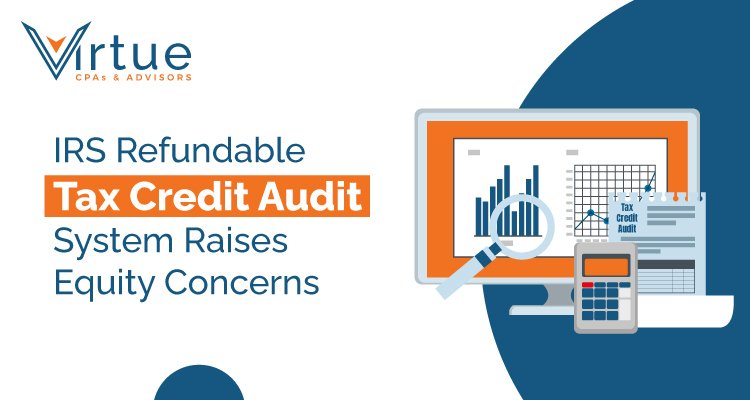Have you ever claimed refundable tax credits like the Earned Income Tax Credit (EITC)? If so, a recent report by the Government Accountability Office (GAO) might raise some eyebrows. It suggests the IRS’s automated system for selecting tax returns with refundable credits for audits could be biased.
What’s the System?
The IRS uses a system called the Dependent Database (DDB) to pick which returns claiming refundable credits get a closer look. This primarily targets the EITC, a tax credit for low- and moderate-income earners. While the IRS reviews the DDB annually, the GAO found this review might not be enough to catch potential bias against certain taxpayer groups.
The Problem: Unseen Biases?
The report highlights concerns that the DDB might rely on outdated data or risk scores that haven’t been updated since 2001. These factors could unintentionally disadvantage specific taxpayer groups. Additionally, the review process might not fully consider all the data and assumptions used by the DDB, making it difficult to identify and address potential bias based on factors like race, ethnicity, or income level.
A Step in the Right Direction
The good news is the IRS has agreed with all six recommendations from the GAO to improve fairness in its audit selection process. These recommendations include:
- Clearer Guidelines: Developing clear guidelines to identify and address potential bias within the DDB system.
- Data Deep Dive: Ensuring all data used by the system is considered during its review.
- Multiple “No-Change” Rates: Calculating different “no-change” rates (a measure of how effective audits are in finding non-compliant taxpayers) to gain a better understanding of audit outcomes. This could help identify if certain groups are disproportionately impacted by audits that ultimately show no wrongdoing.
Taking Action: IRS Shows Commitment
Taking Action: IRS Shows CommitmentThe IRS is taking these concerns seriously. They’ve established two internal teams dedicated to researching and addressing fairness issues in audits. Additionally, they’ve already changed the criteria used to select returns claiming refundable credits for audits. The IRS is currently monitoring the impact of these changes on potential bias.
Data Challenges: Protecting Privacy While Ensuring Fairness
A significant challenge in addressing bias is the lack of race and ethnicity data on tax returns. The IRS is exploring ways to improve data collection and analysis while still protecting taxpayer privacy. This could involve collaborating with other government agencies to share data securely, but such measures require Congressional approval, which hasn’t happened yet.
The Bottom Line: Moving Towards Fairer Tax Audits
The GAO report and the IRS’s positive response are encouraging signs. The IRS’s commitment to fair and impartial tax enforcement, combined with the proposed changes, suggest a move towards a more equitable audit selection process. It’s important to stay informed about future tax law changes to ensure everyone has equal opportunity at filing their taxes correctly.



